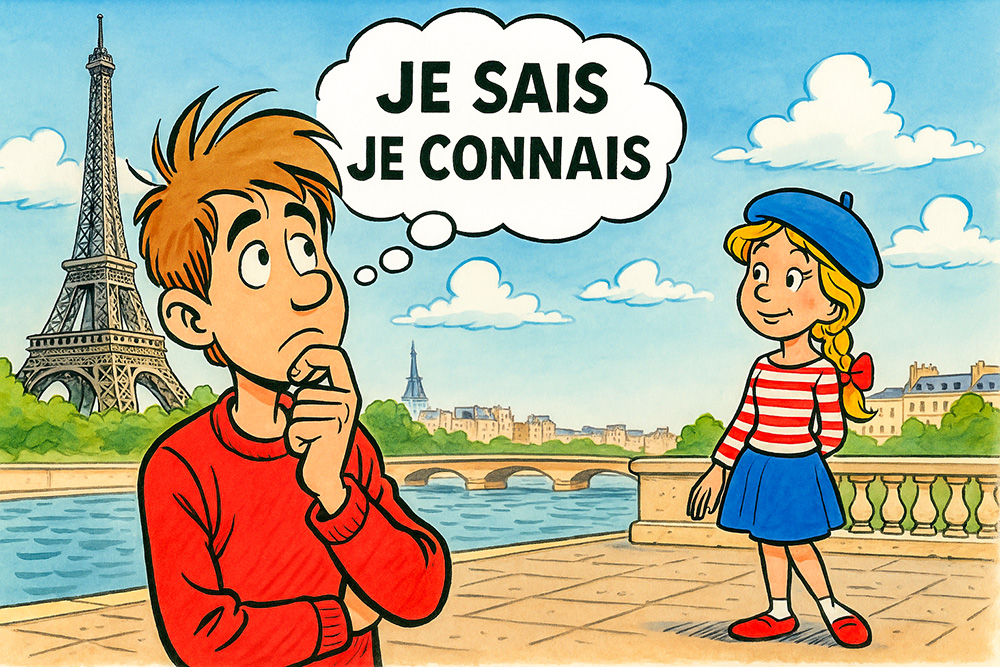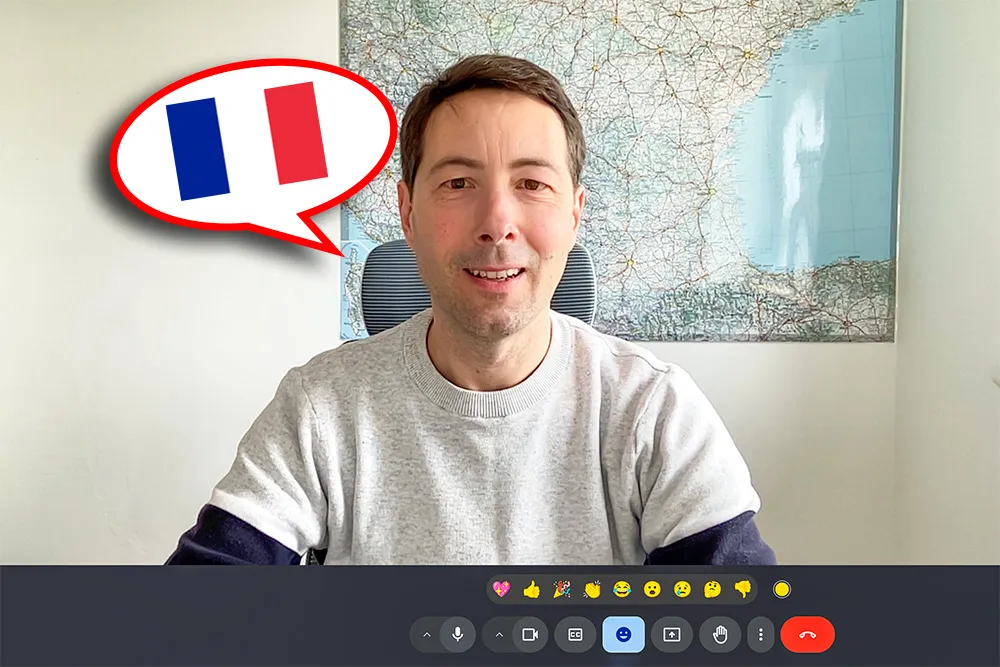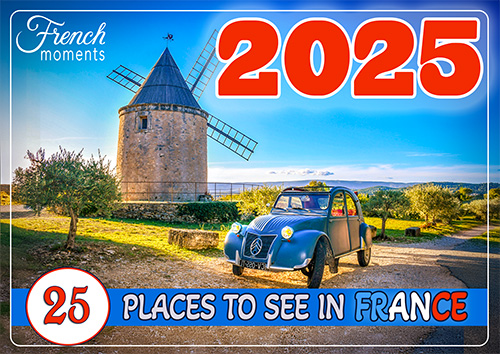If you’re an anglophone (American, British, Aussie…), you probably use to know everywhere: I know her, I know Paris, I know how to ski.
In French, though, you have two distinct verbs: savoir and connaître.
And choosing the wrong one will instantly mark you as a foreigner — even if your pronunciation is flawless.
🕵️♂️ Quick & simple rule
✅ Connaître → to be familiar with someone or something (person, place, book, wine, concept).
✅ Savoir → to know a fact, know how to do something, or introduce a clause (that, where, how…).
💡 Grammar tip
- Connaître → always used with a noun. Example: Elle connaît l’alphabet.
- Savoir → often used with a verb. Example: Elle sait lire.
Also: savoir means having acquired knowledge, or being able to do something.
📖 Examples from everyday life
- Elle sait écrire. → She knows how to write.
- Elle connaît l’alphabet. → She knows (is familiar with) the alphabet.
- Vous savez dessiner. → You know how to draw.
- Vous connaissez la perspective. → You know (understand) perspective.
See the difference? One is about knowing how to do something (skill, ability), the other about knowing something/someone as a thing you’ve encountered or learned about.
🚨 Classic pitfalls for anglophones
- “I know how” → always savoir (je sais comment), never je connais comment.
- “I know him/her/this place” → always connaître (je connais), never je sais.
- “I know that” → savoir (je sais que).
✈️ For the traveller: practical phrases
| English | French |
|---|---|
| I know Paris. | Je connais Paris. |
| I know this wine. | Je connais ce vin. |
| I know how to ski. | Je sais skier. |
| I know it’s closed on Mondays. | Je sais que c’est fermé le lundi. |
| I know him. | Je le connais. |
| I know how to get there. | Je sais comment y aller. |
❌ Never say je sais Paris or je connais comment faire ça — French ears will flinch!
🎉 Mini Quiz: Savoir or Connaître?
Pick the correct verb!
1️⃣ I know this museum.
→ Je ______ ce musée.
2️⃣ I know how to order a coffee.
→ Je ______ commander un café.
3️⃣ I know her from school.
→ Je la ______ de l’école.
4️⃣ I know that the train is late.
→ Je ______ que le train est en retard.
5️⃣ I know how to ski.
→ Je ______ skier.
Answers: 1. connais | 2. sais | 3. connais | 4. sais | 5. sais
😄 Real-life anecdotes
A British tourist in Paris
There’s the famous story of a British tourist who proudly told a French waiter: Je sais ce vin ! (“I know this wine!”). The waiter smiled and replied playfully: Ah bon, vous l’avez étudié à l’école ? (“Oh really, you studied it at school?”).
Why? Because savoir suggests you know facts about something — not just that you’re familiar with it. What the tourist meant was: Je connais ce vin (“I’m familiar with this wine”). Small mistake, but it created a funny moment!
An American expat learning French
An American expat once told a ski instructor: Je connais skier. The instructor looked puzzled — it sounded like “I’m familiar with skiing (as an idea)” rather than “I know how to ski.”
The correct phrase would have been: Je sais skier. Just a little word swap, but it completely changed the meaning!
A common language mix-up for learners
Many language learners (French or English) fall into this trap. For example, a French learner of English might say I know to swim when they mean I know how to swim. It’s the same confusion between knowing something in theory and knowing how to do it.
These mistakes are part of the learning journey — and often make for great stories later!
🏆 Final tip for the road
If you hesitate, ask yourself:
Am I talking about a person, place, or thing I’m familiar with? → connaître
Am I talking about facts, information, or how to do something? → savoir



